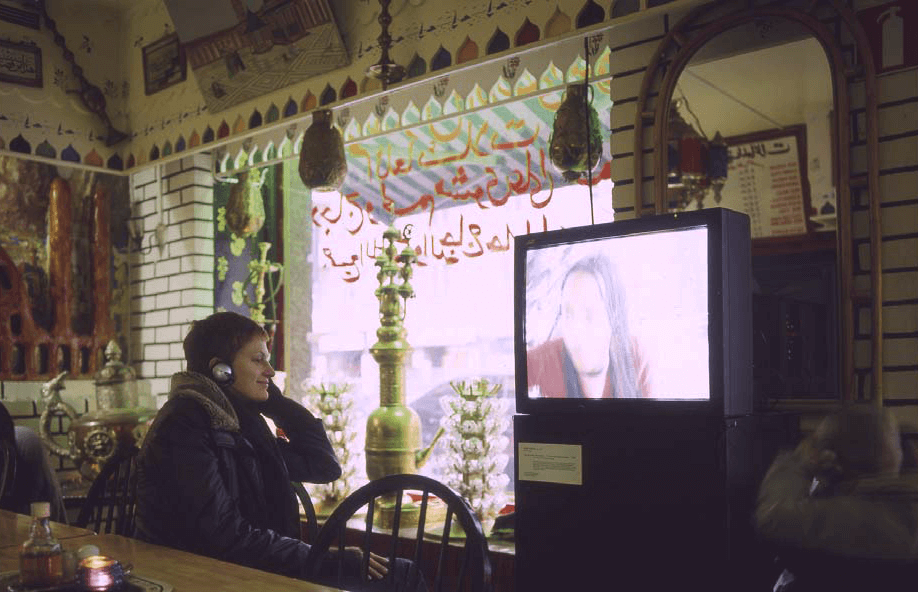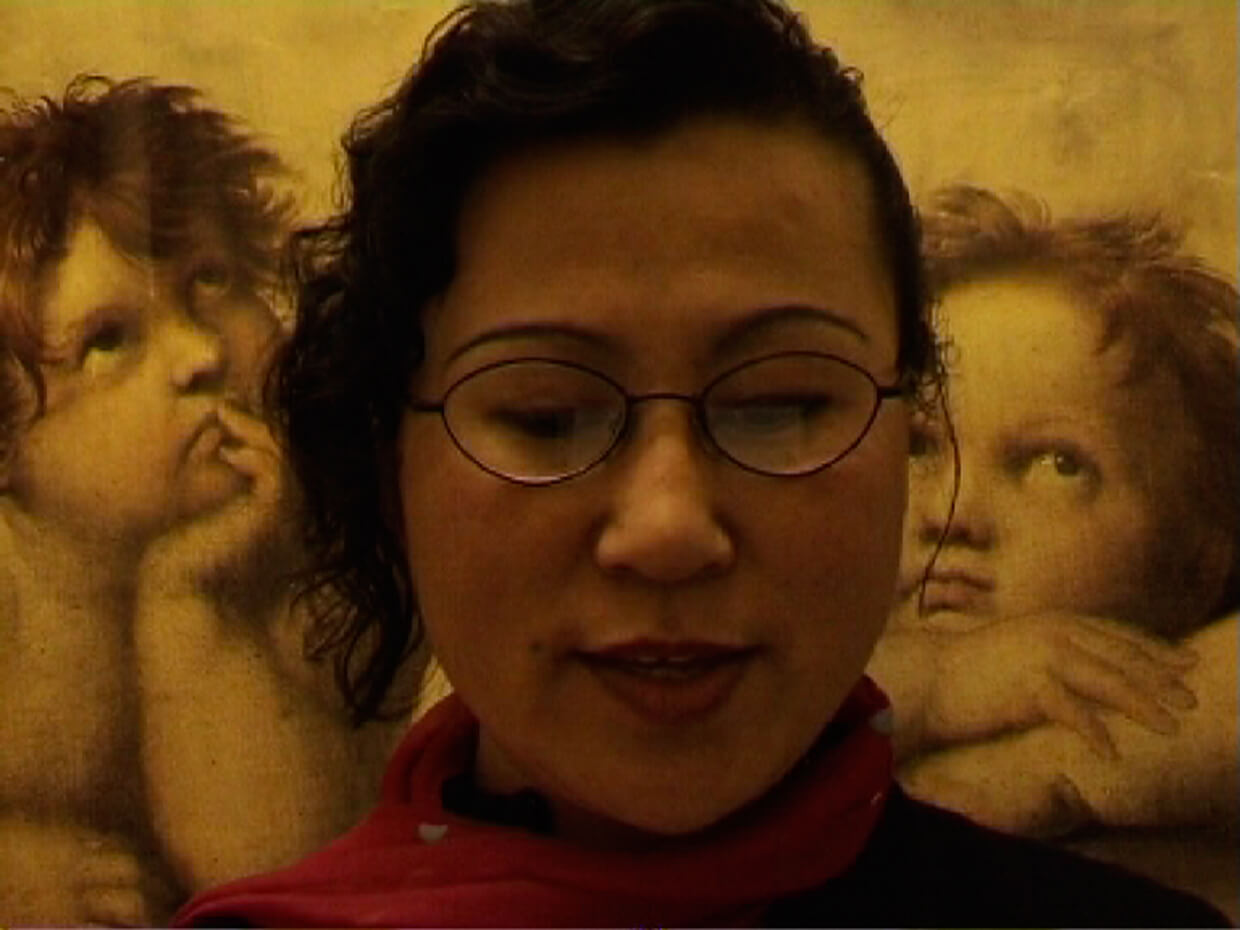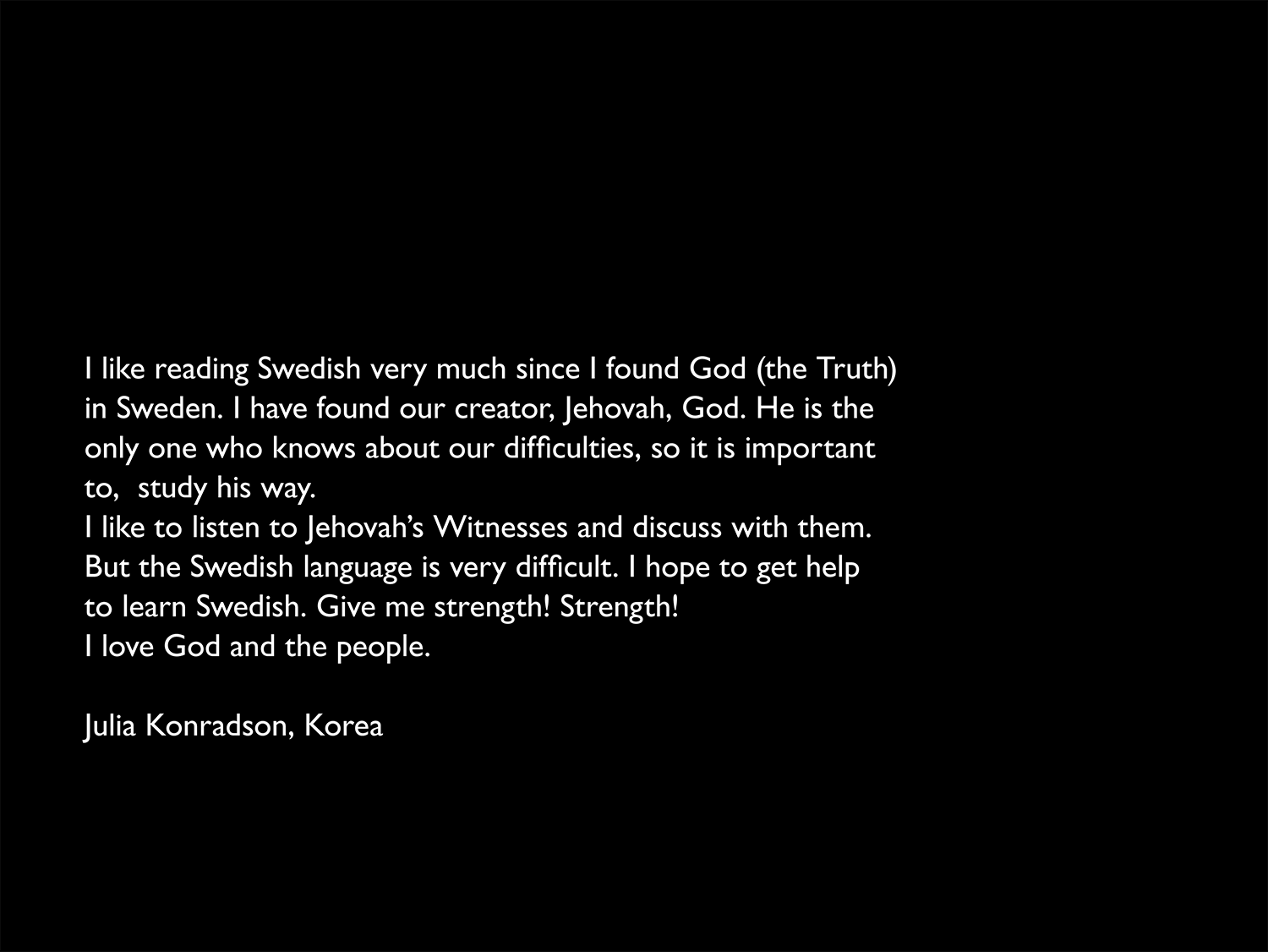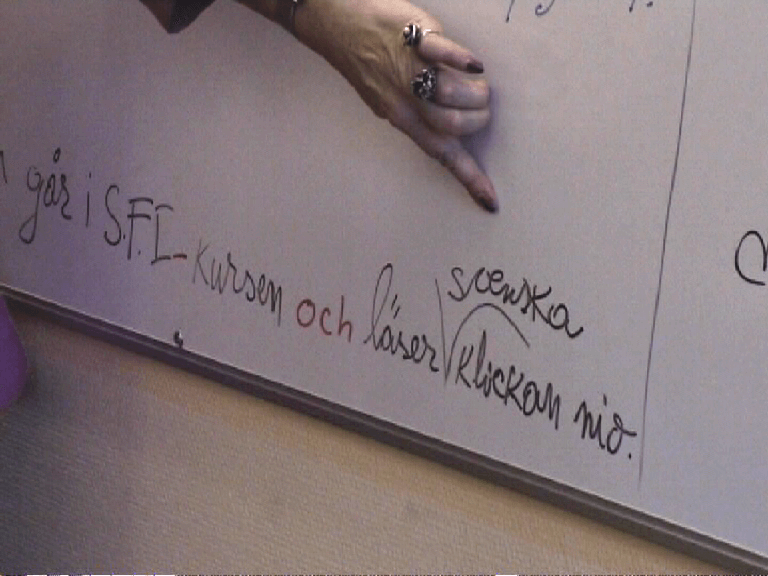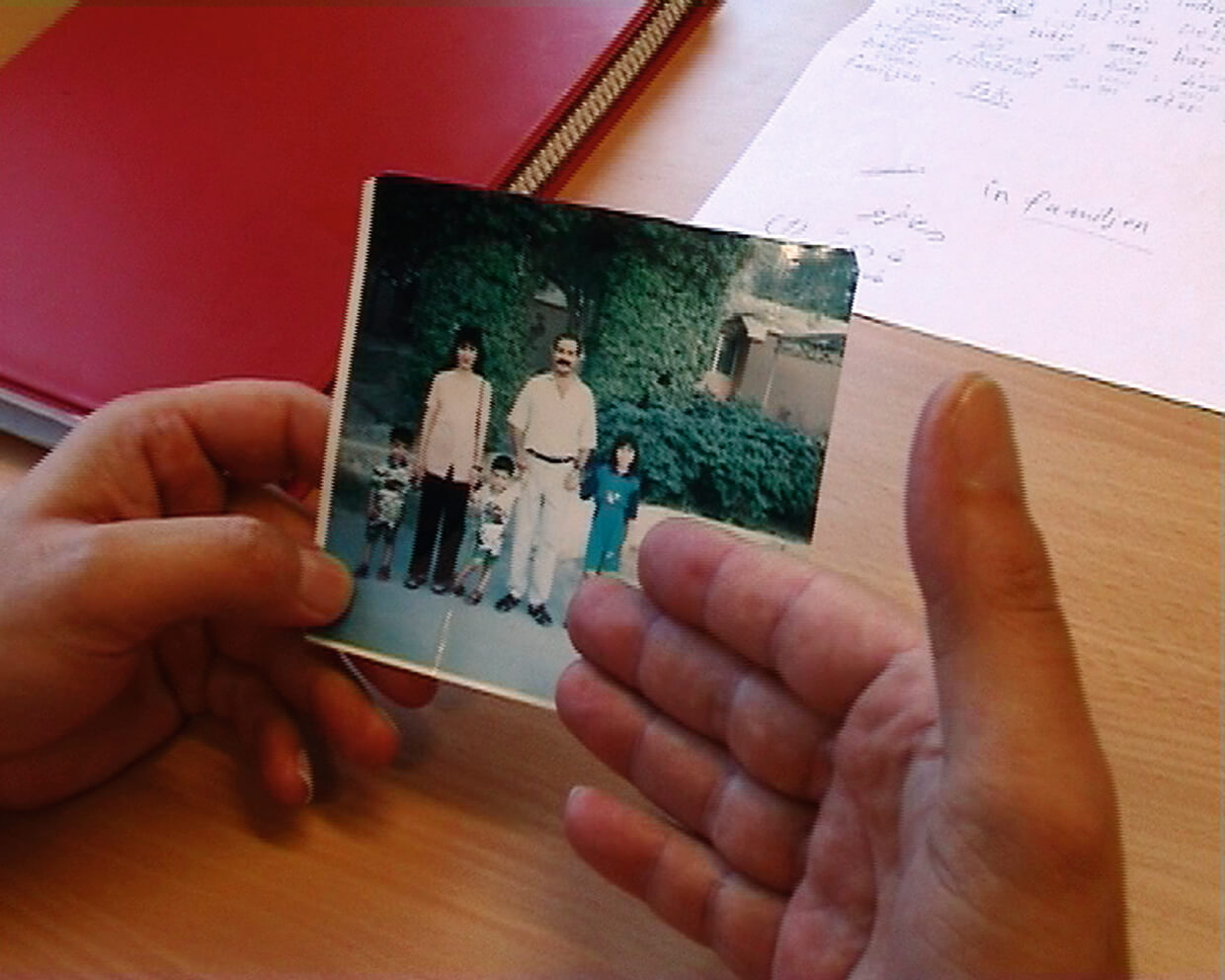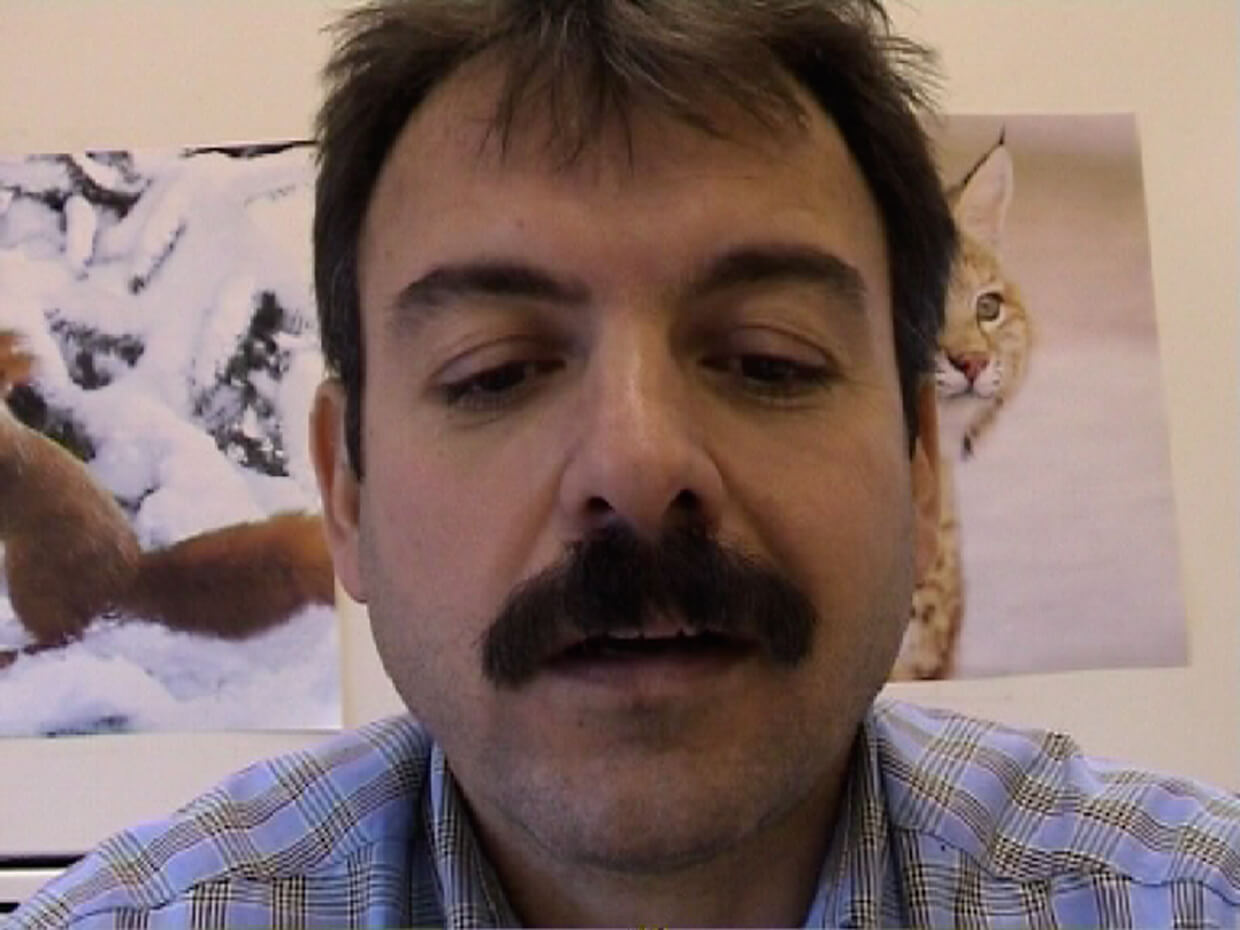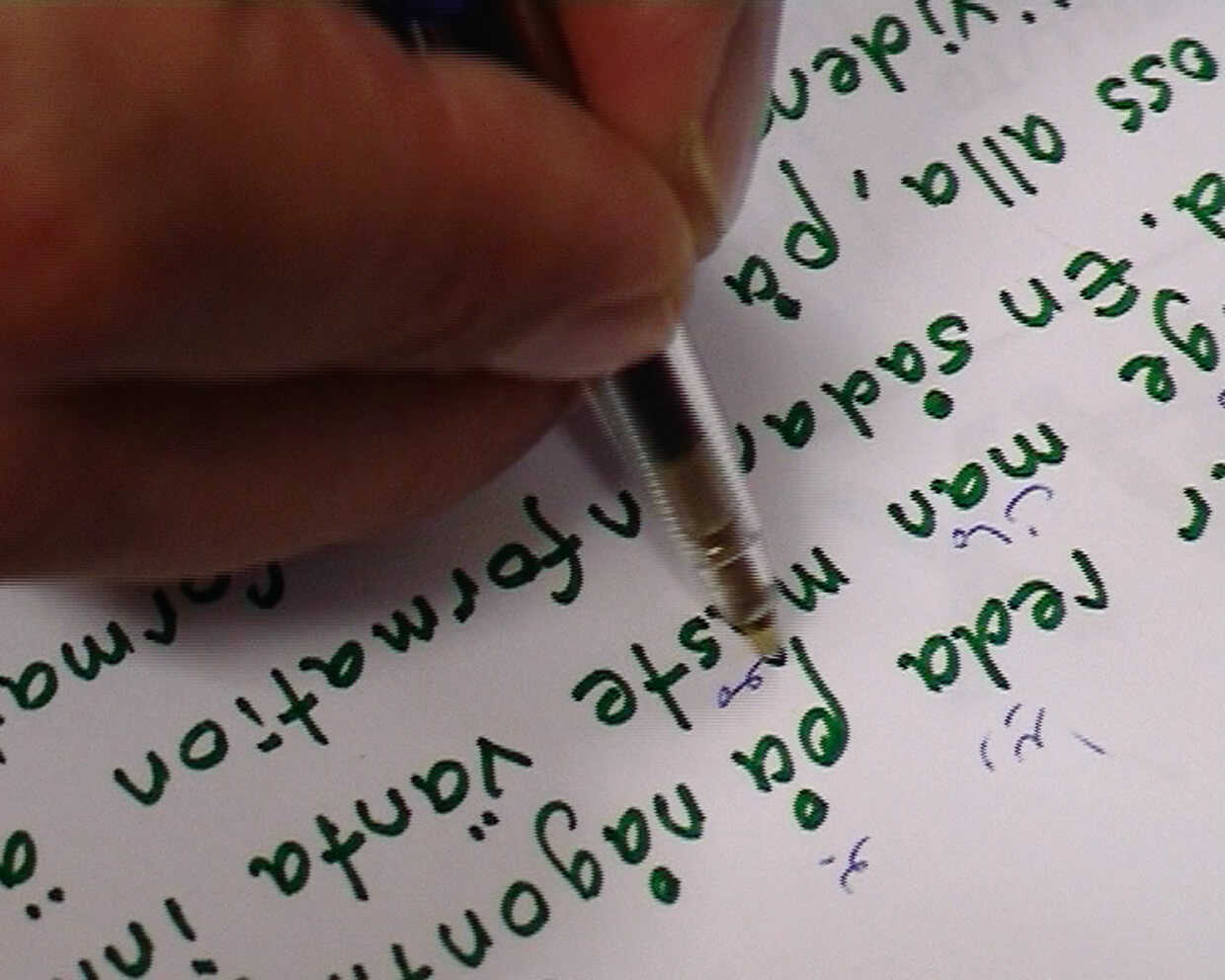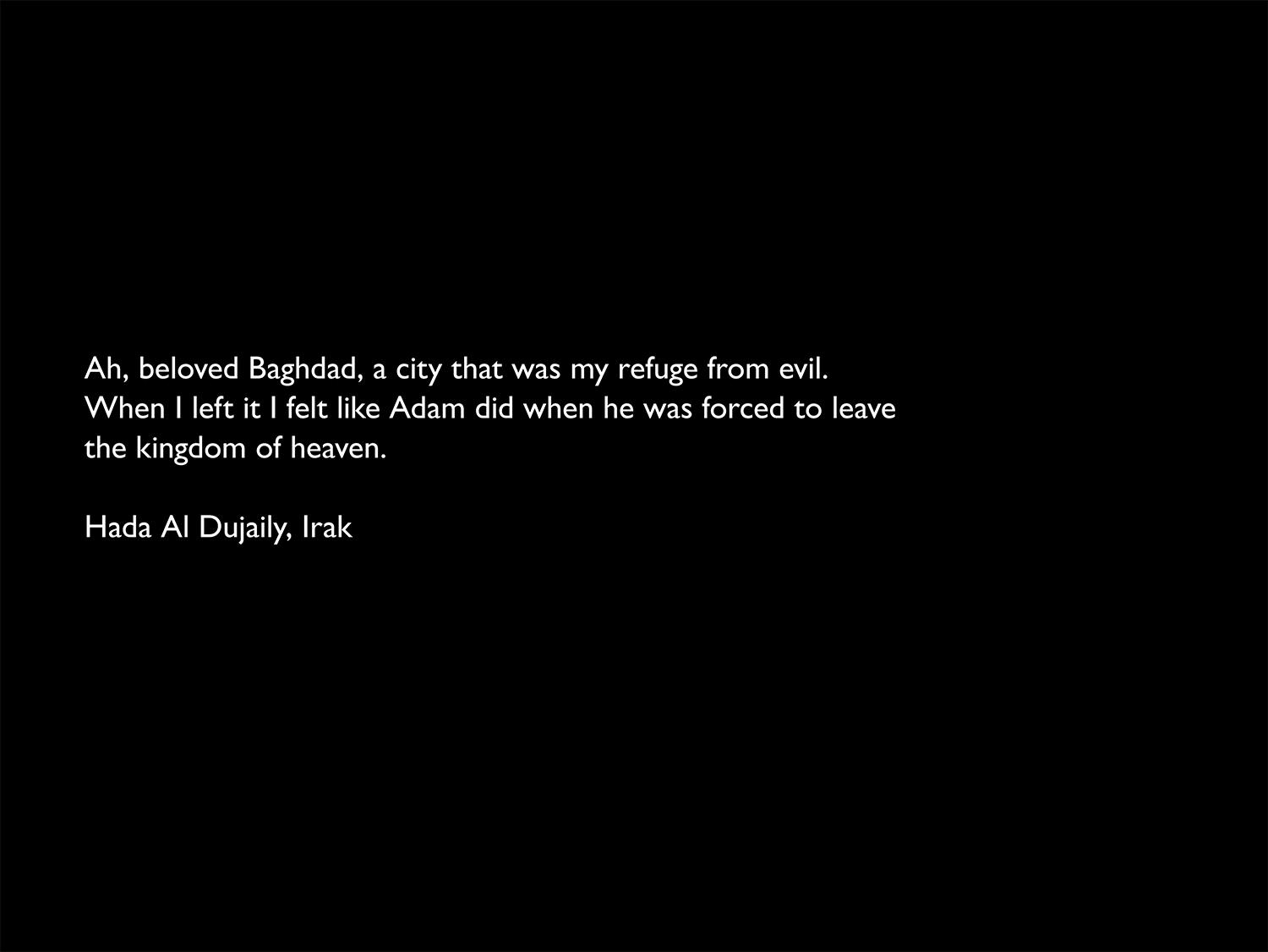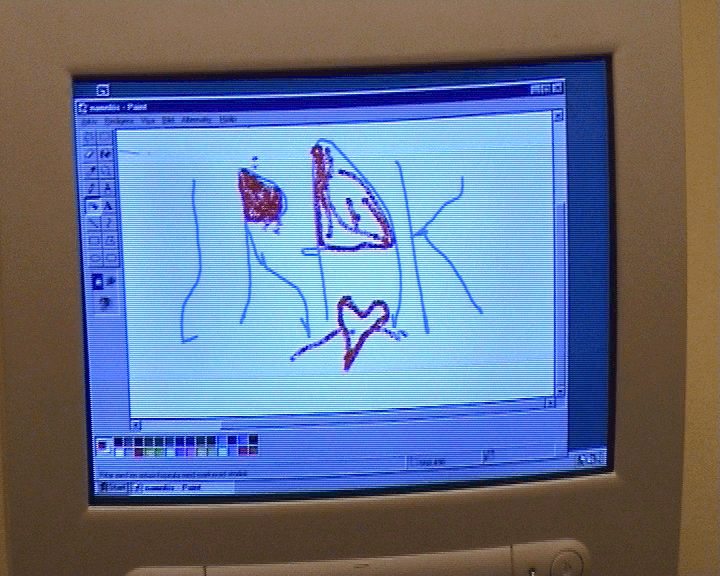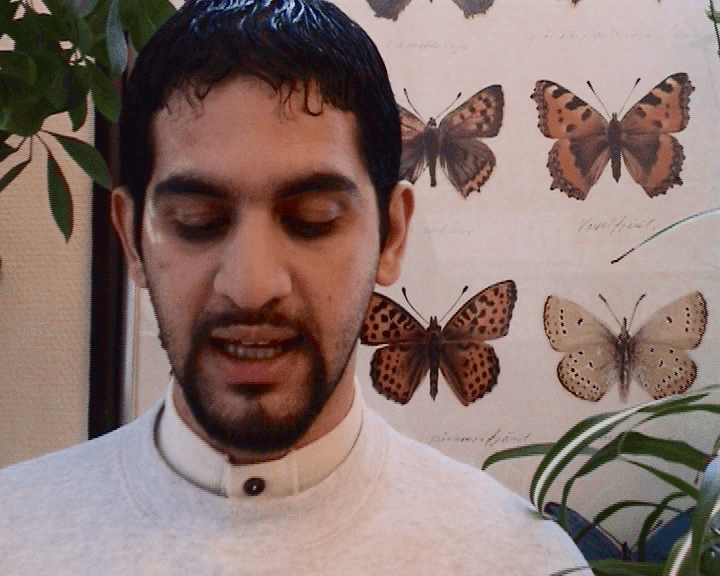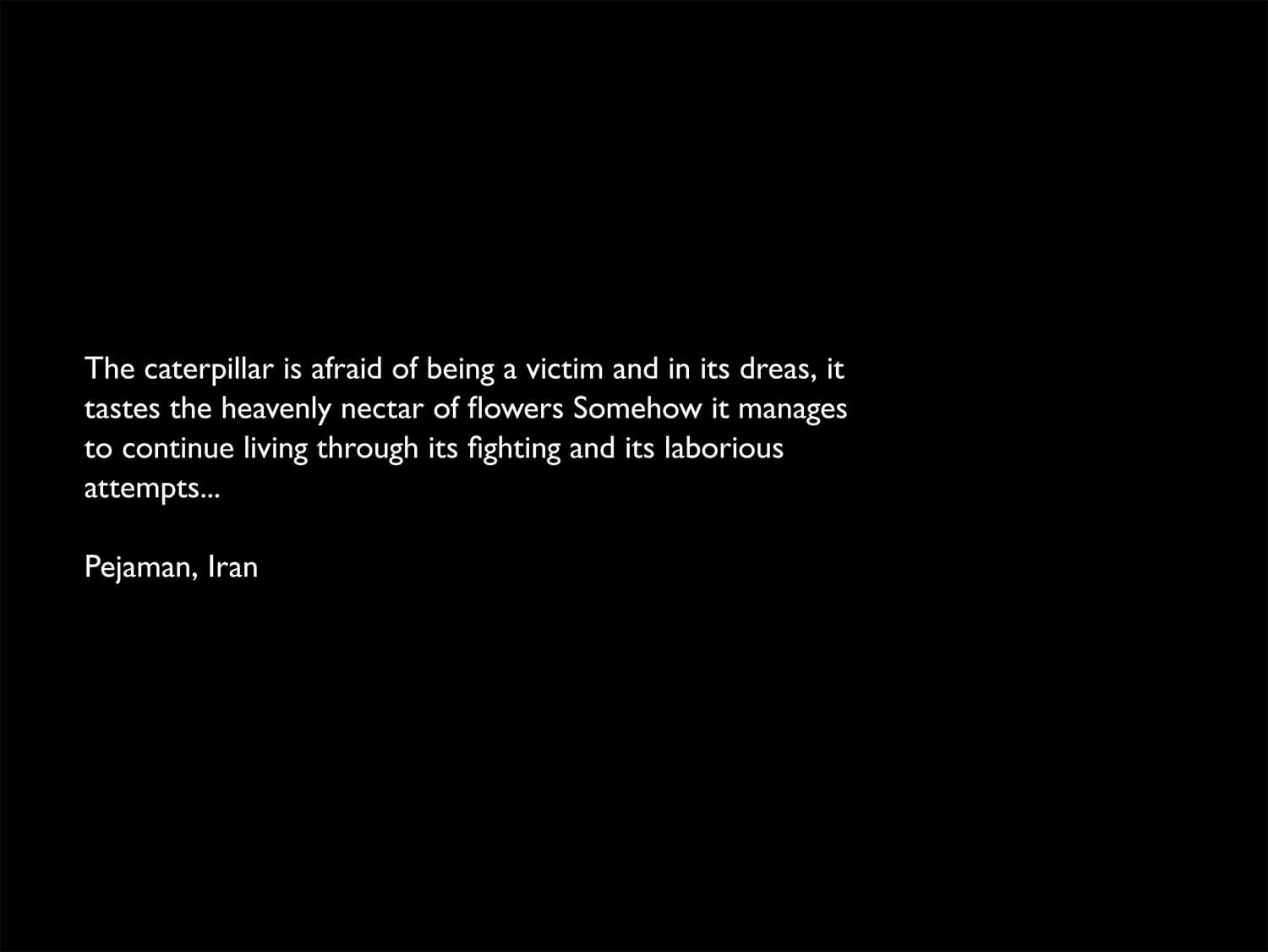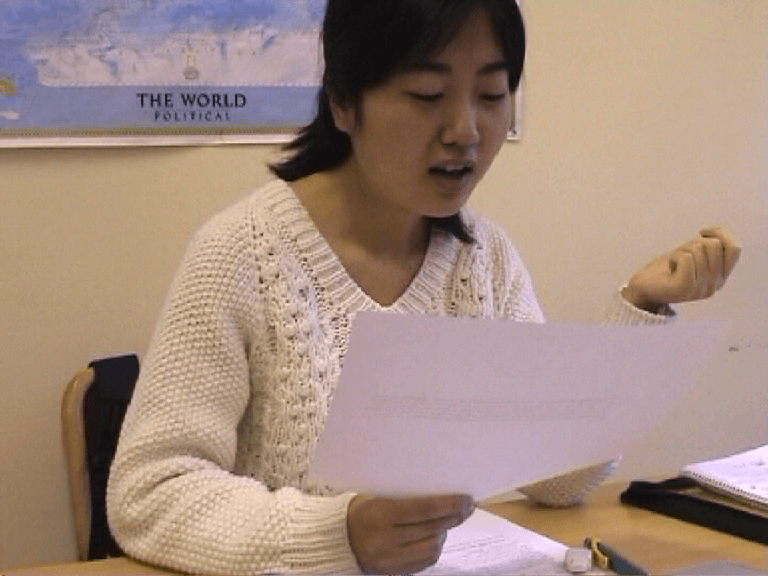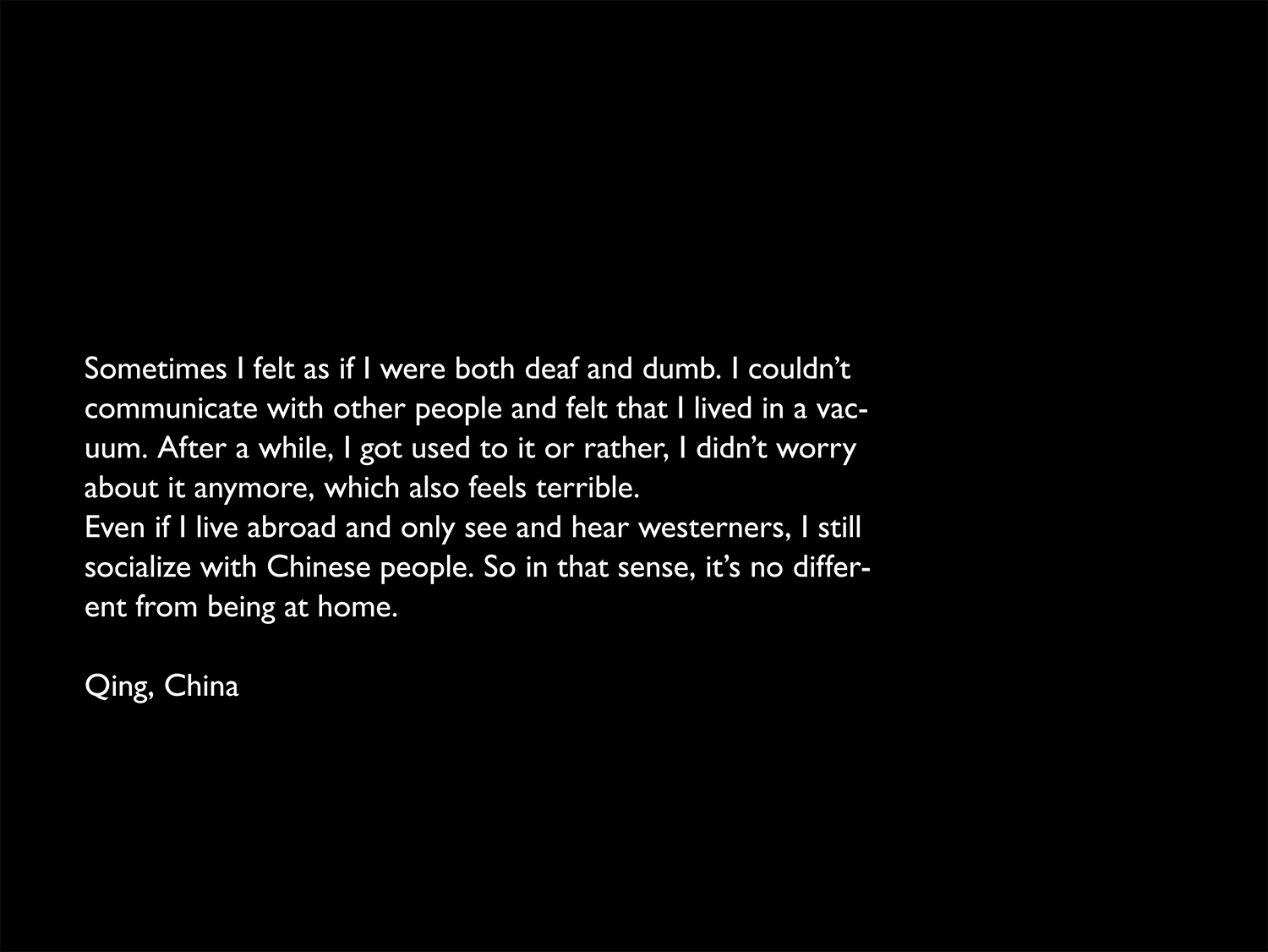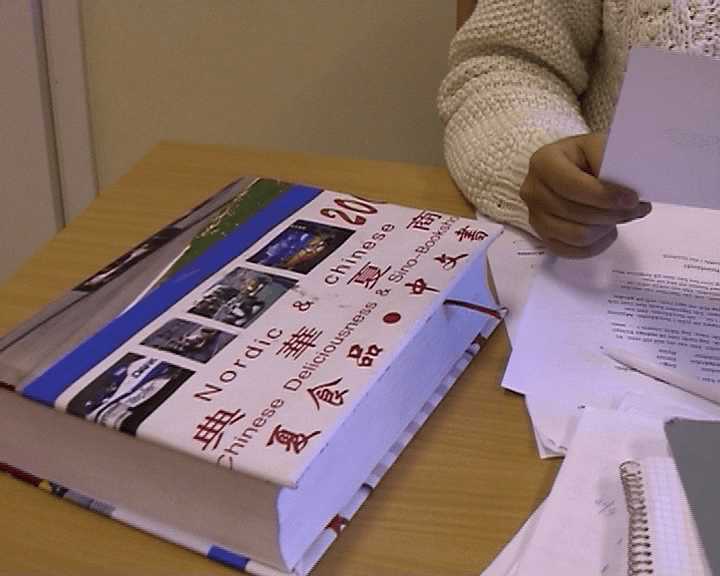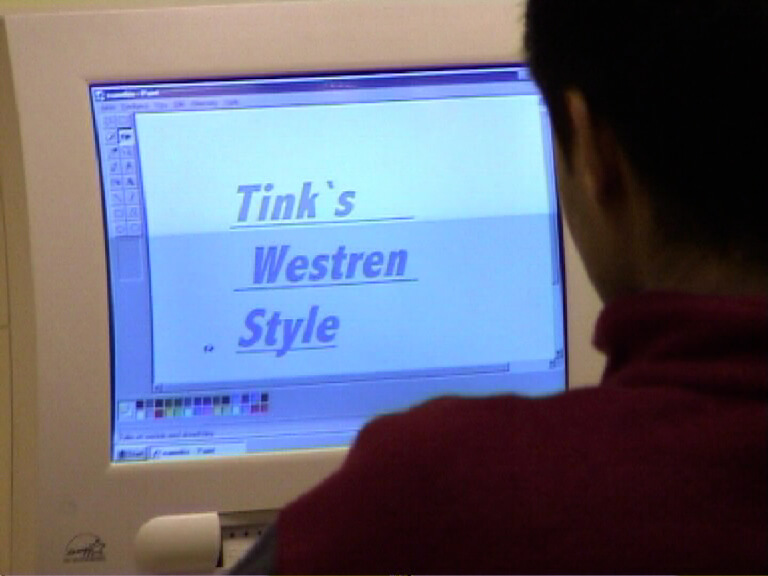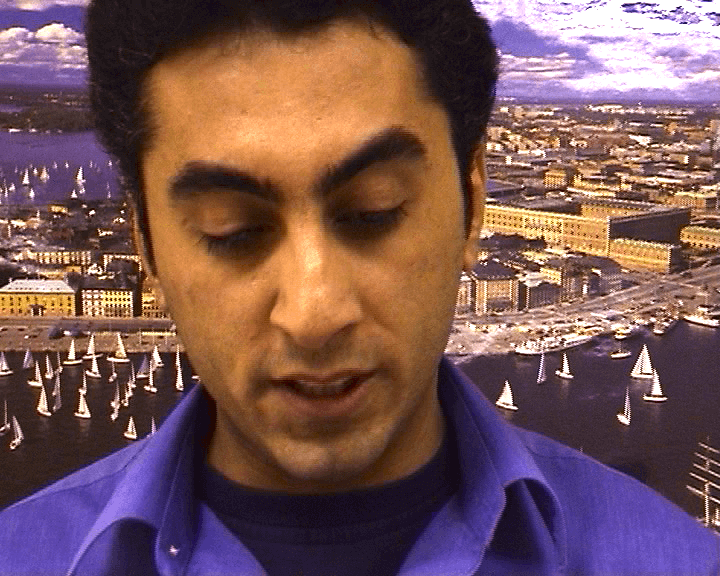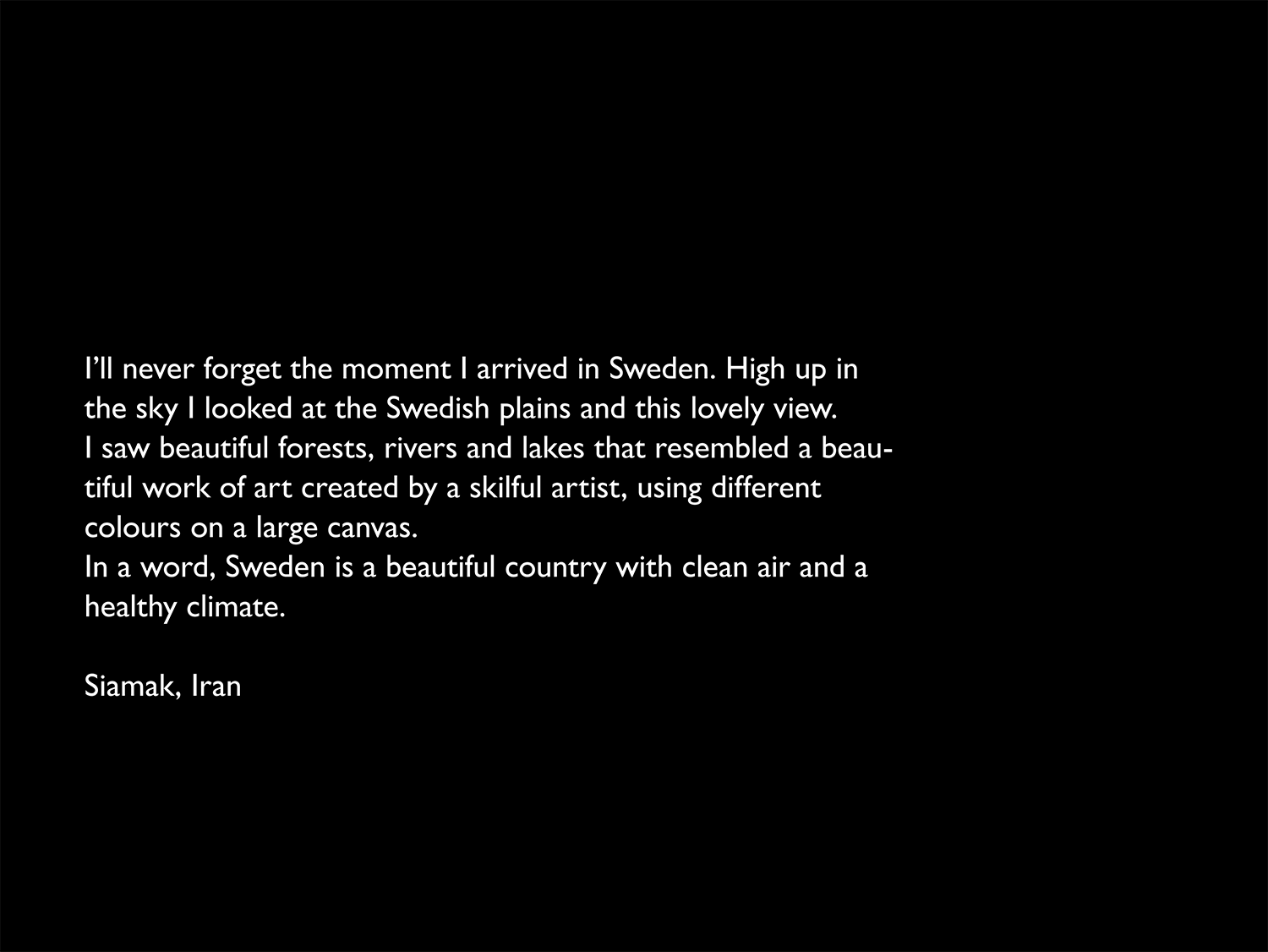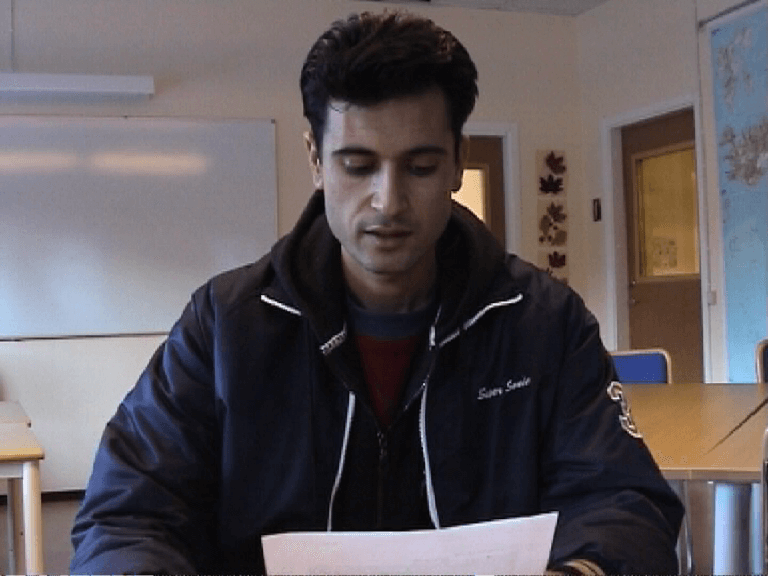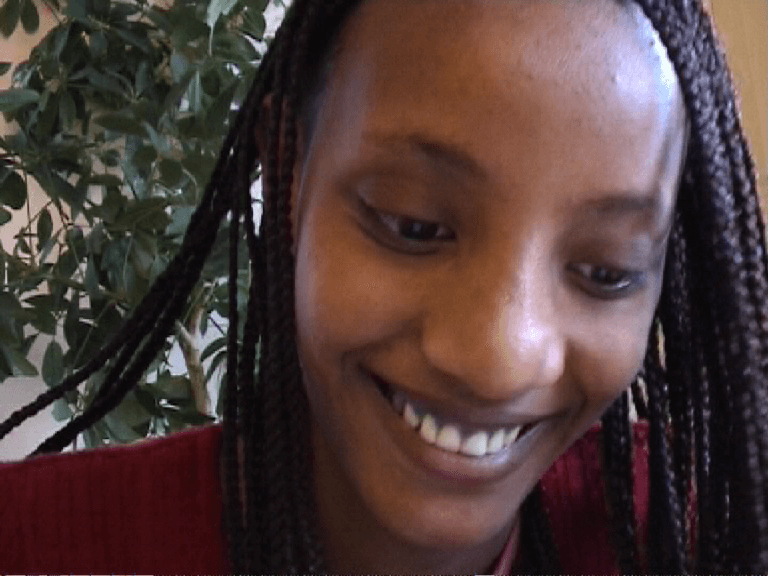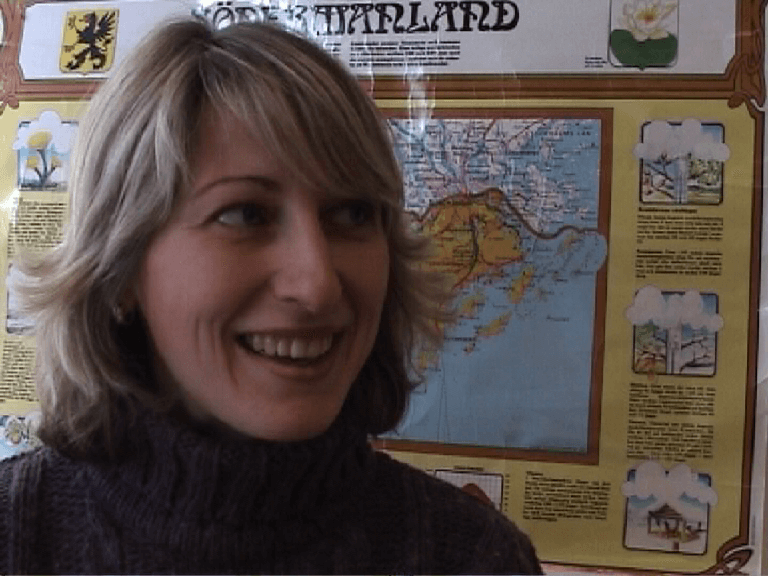2001, Video, 23’14” Developed for Moderna Museet, Stockholm, Sweden.
| / |
This brief documentary video is the outcome of a three-month research in 2001 in Stockholm, during which the artist focused on Swedish language schools for immigrants and refugees.
Ersen, whose work frequently draws on specific local contexts and communities, generally takes a strong interest in how identities are shaped and transformed across national, cultural, and linguistic borders. For this project Ersen asked a number of foreigners and refugees in one of the suburbs south of Stockholm who study Swedish at one of these schools to write down – in their mother language – what they would like to say to the Sweden, if they could speak Swedish?
The students were free to choose whatever subject they wanted, and their statements vary between personal, emotional and political comments. These statements were then translated into swedish and read by the participants themselves in front of the camera – with the help of an instructor – to correctly pronounce their sentences in Swedish. The participants natural insecurity with the language is amplified by the teacher’s interventions and corrections, as well as by the camera’s relentless focus on the protagonists’s face, creating a viewing experience that hints at the profound vulnerability and instability inherent in the condition of being a refugee.
The simplicity and the positive tone of these statements, however, cannot hide the fact that the encounter with this culture and the task of learning the language have not, in most cases, been a voluntary decision, but rather a consequence of the loss of homeland, family, friends, and vocation in the first place.
“If You Could Speak Swedish…” was shown at the legendary kebab restaurant, Jerusalem’s Grill House on Södermalm in Stockholm, and at Moderna Museet. For many immigrants kebab restaurants are important meeting places and information centres, where they can get information about the city, work, housing, etc. They are also places where immigrants may have a chance to speak their native languages.
